ZPH congratulates all accepted submissions and the teams winning first prizes: Resilient Hub and HEAL + : A regenerative design and implementation framework for localizing SDG in Covai!
These submissions are part of the Open Call for Boards of the ISI/ZPH Conference: Equitable and Sustainable Infrastructure / Delivering Merit and Climate Resilience held on November 17 & 18, 2021. Each accepted and winning board explored the conference’s topic in taking a 360-view of what it means to design, build, and implement infrastructure systems that deliver merit, climate action, and provide equitable services to communities. In addition to the board submission, each team completed an Envision-based questionnaire to inform the potential sustainability strengths of the projects. The awards have been recommended by a Sustainability Expert Panel composed of the ZPH Sustainable Infrastructure Advisory Board members. Two first prizes were selected:
The 1st Prize-winning Resilient Hub team is composed of a multidisciplinary GSD team: Lara Tomholt (Doctor of Design candidate ’22), Kritika Kharbanda (Master of Design Studies Energy & Environment (MDes EE) ’23); Kuan Ting Chen (MDes EE ’21); Sihui (Iris) Chen (MArch I ’21 & MDes’ 23); and Andrew Gibbs (MDes Real Estate’ 21). Resilient Hub accomplishes a robust environment- and climate- responsive design that reduces GHG emissions and embodied carbon while increasing comfort and livability. Remarkably, the project incorporates detailed strategies for holistic sustainability, gender equity, and resilience to adapt to climate change in the Boston area. The responses to the Envision-based questionnaire demonstrated a well-balanced performance with high strengths in its considerations for the economy, financial feasibility, ecology, mobility, emissions, and the community.
The SIAB Sustainability Expert Panel noted that the Resilient Hub achieves:
Thoughtful and comprehensive inclusion of Envision criteria with compelling graphics. – Karen Lutz, Corporate Sustainability Director, TRC
Creative design choices. We know that sea-level rise for our coastal cities will be an escalating issue in the next several years. This type of thinking is what is needed to adapt. – Jim Sparber, Vice President, Engineering for Greenprint Partners
The project has thought through and well-articulated the various sustainable design practices and measures that can be implemented at a building level… – Deepa Sathiaram, LEED Fellow, IGBC Fellow, USGBC & WELL Faculty, Executive Director, En3 Sustainability Solutions
The 1st Prize-winning multidisciplinary GSD/Yale/IAAC team from HEAL +: A regenerative design and implementation framework for localizing SDG in Covai! Naksha Satish (Urban Designer, Master of Architecture in Urban Design (MAUD) 2022′, Harvard Graduate School of Design); Srinivas Karthikeyan (Architecture student, Yale University); and Keshava Narayana (Computational Designer, IAAC University). The HEAL + framework accomplishes a strategy that bridges the gap between top-down and empowered bottom-up goals and design – collaboratively. It incorporates a multidimensional focus with solutions that range from waste to renewable energy, health, non-motorized transport, among others. While it is low tech for high impact, the framework also draws on digital smart tracking and monitoring mapped to SDG performance indicators. The in-situ upgradation strategy is building on existing context and resources while helping to revitalize vacant lands rather than clearing and relocation. The responses to the Envision-based questionnaire demonstrated a well-balanced performance with high strengths in resilience, community, ecology, water, mobility, collaboration, planning, siting, and conservation.
… strong systems thinking, integration of the SDGs and measurable outcomes.– Karen Lutz, Corporate Sustainability Director, TRC
Well-thought-out at a macro level and a holistic approach to sustainable development of an existing city… – Deepa Sathiaram, LEED Fellow, IGBC Fellow, USGBC & WELL Faculty, Executive Director, En3 Sustainability Solutions
… this is a bottom-up, high engagement, low tech and cost approach to targeted community regeneration and improved quality of life – with a strong sustainability ethos/focus. – Marty Janowitz, MES, ENV SP, Vice President of Sustainable Development (Retired), Stantec
More details about all the accepted submissions at: https://research.gsd.harvard.edu/zofnass/files/2021/11/ISI-ZPH-Proceedings-booklet.pdf

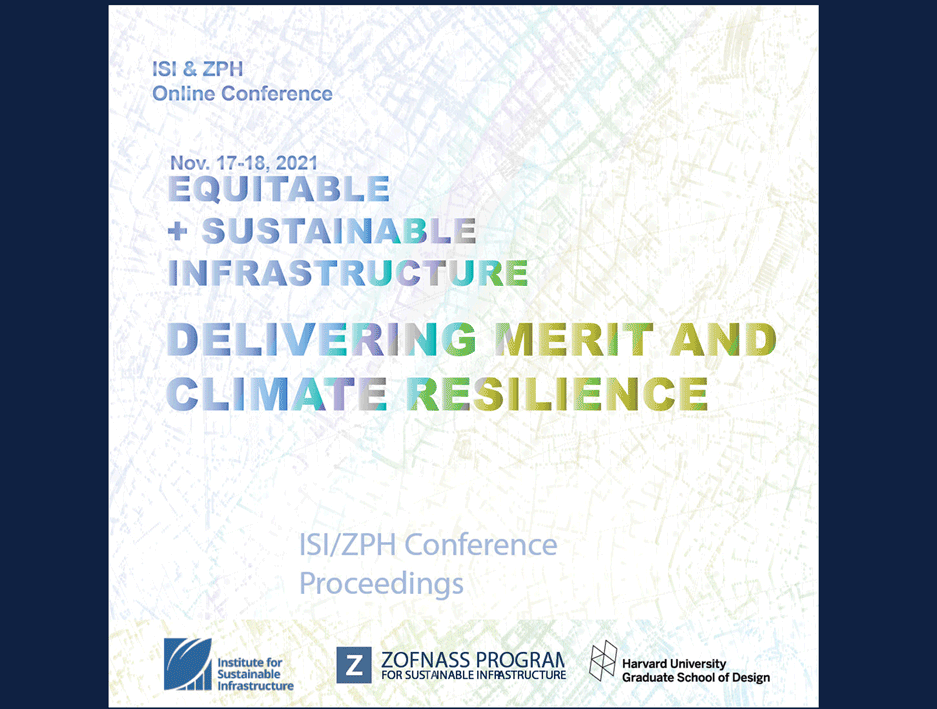

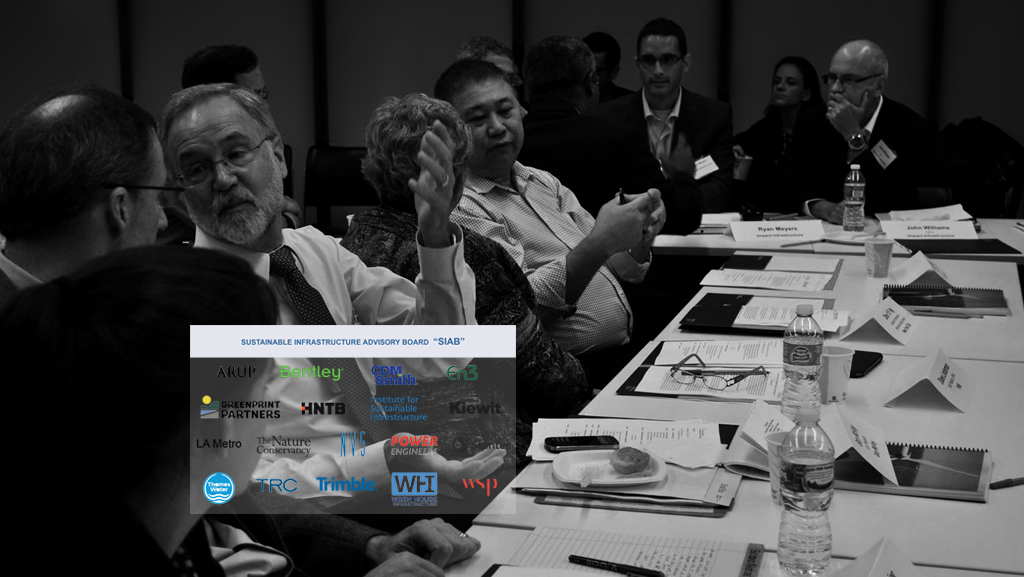
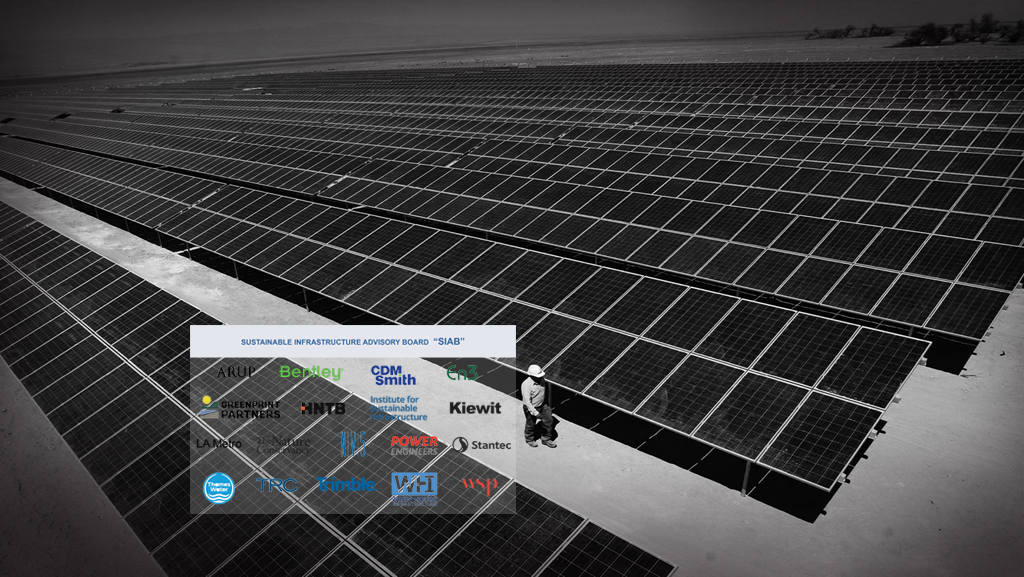
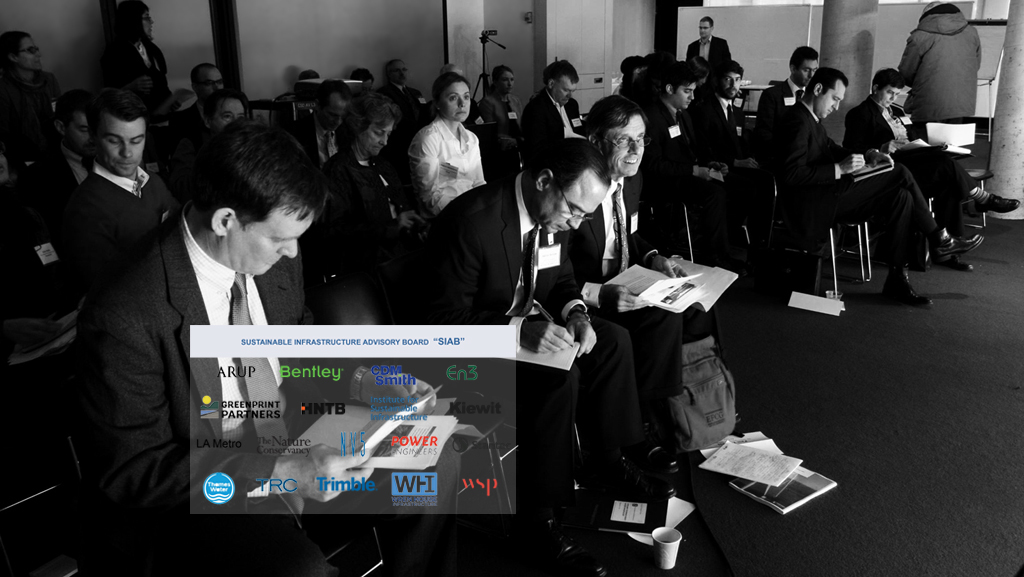
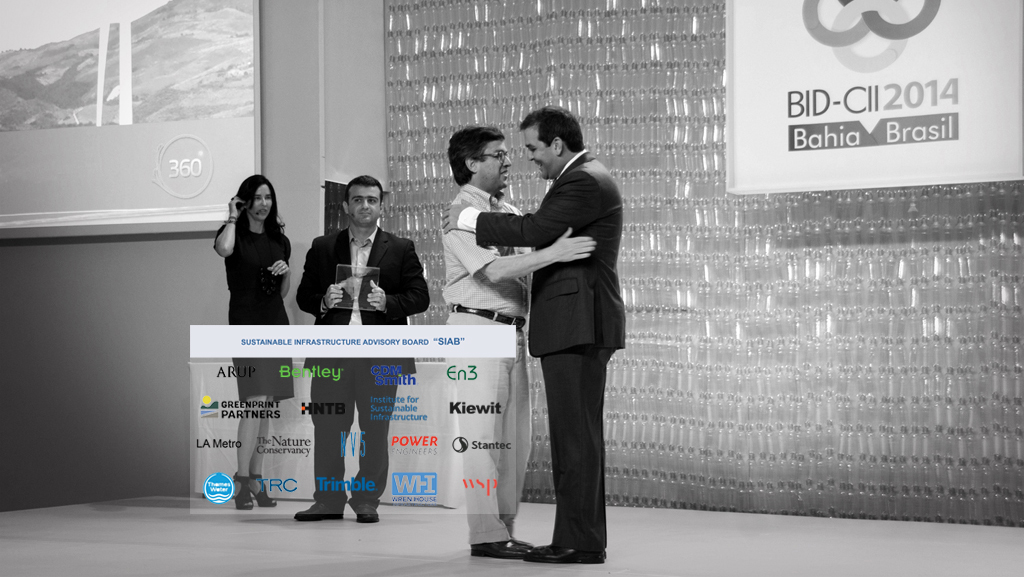
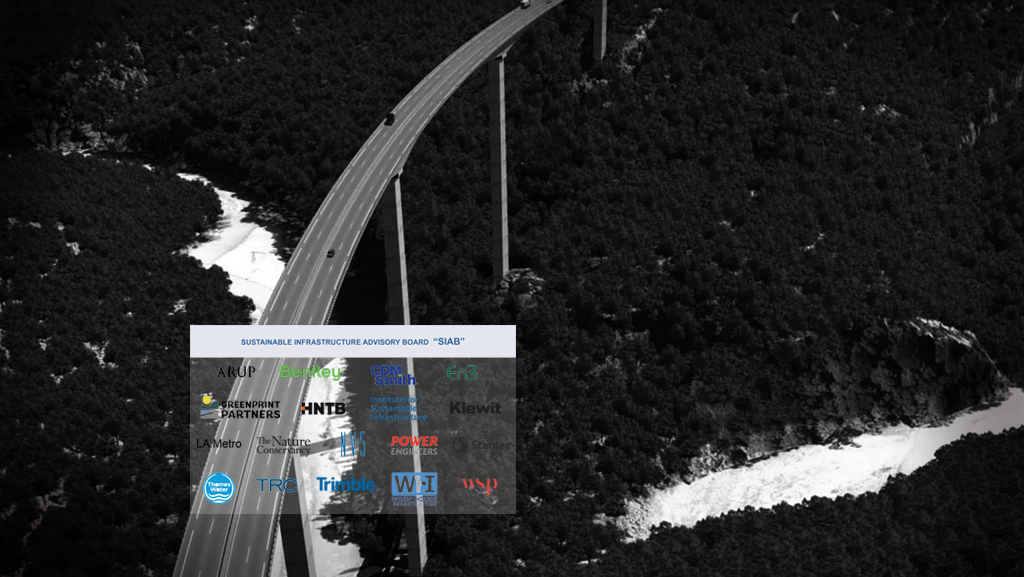
Join us now ZPH Workshop: #Sustainable #Infrastructure for #ClimateAction in-person & ZOOM https://t.co/fCjkr0Ykrh
About 2 years ago from Zofnass Program's Twitter